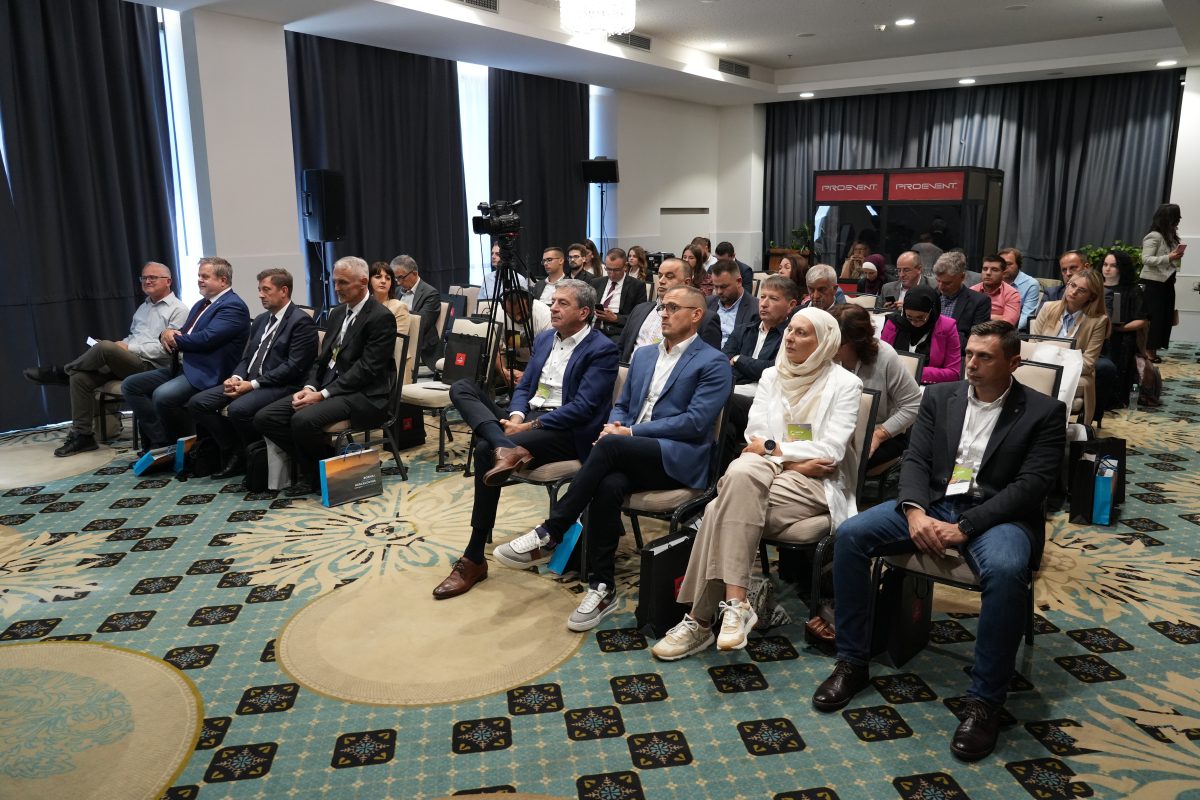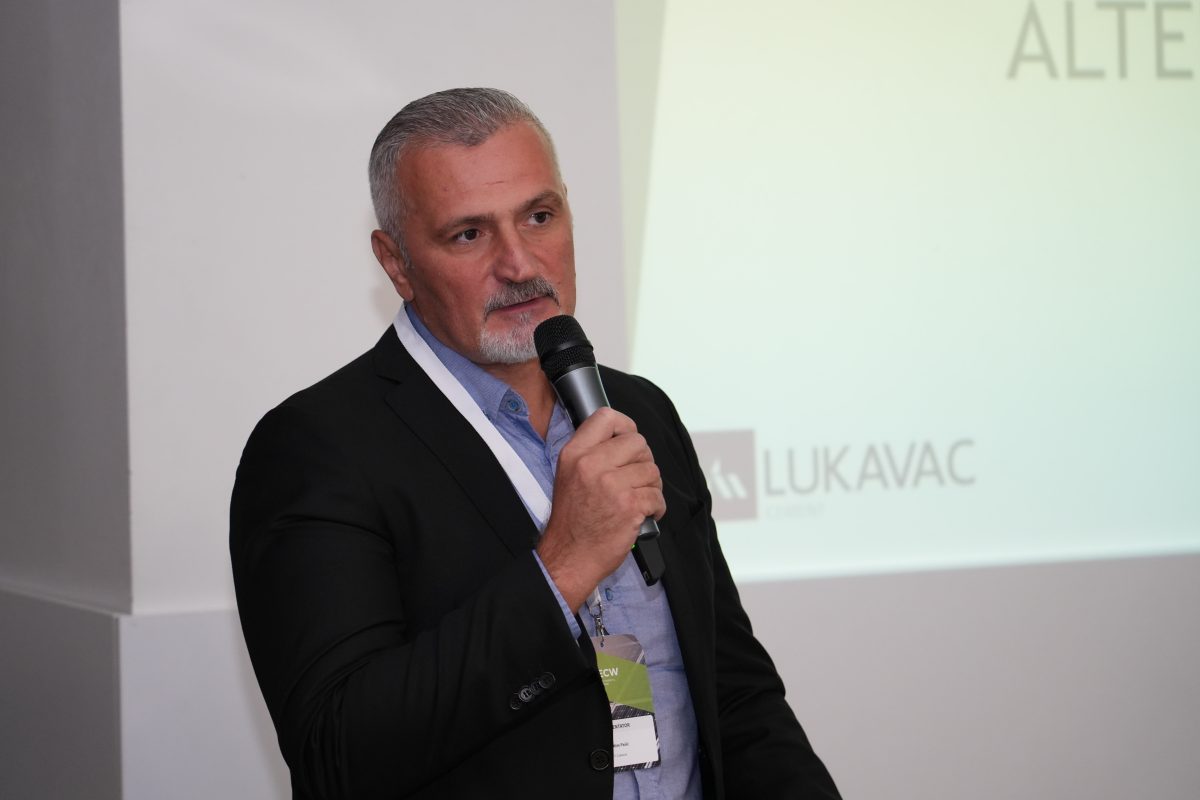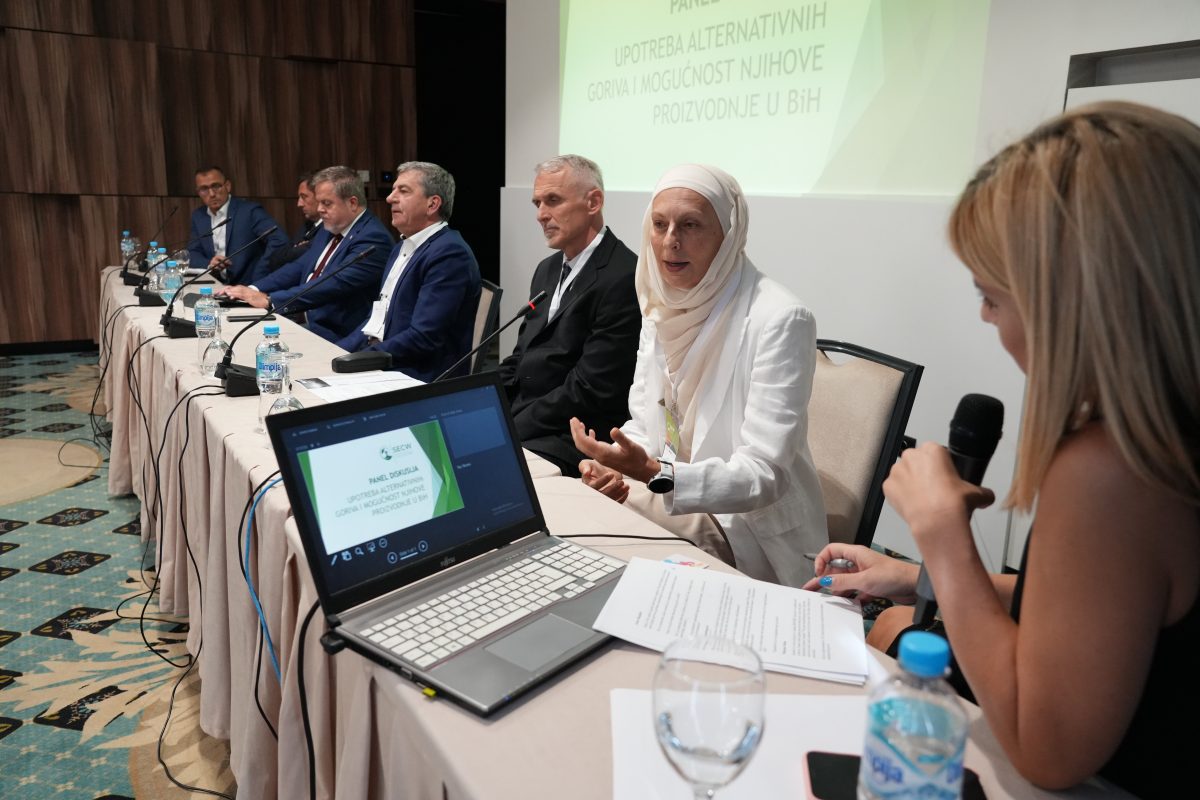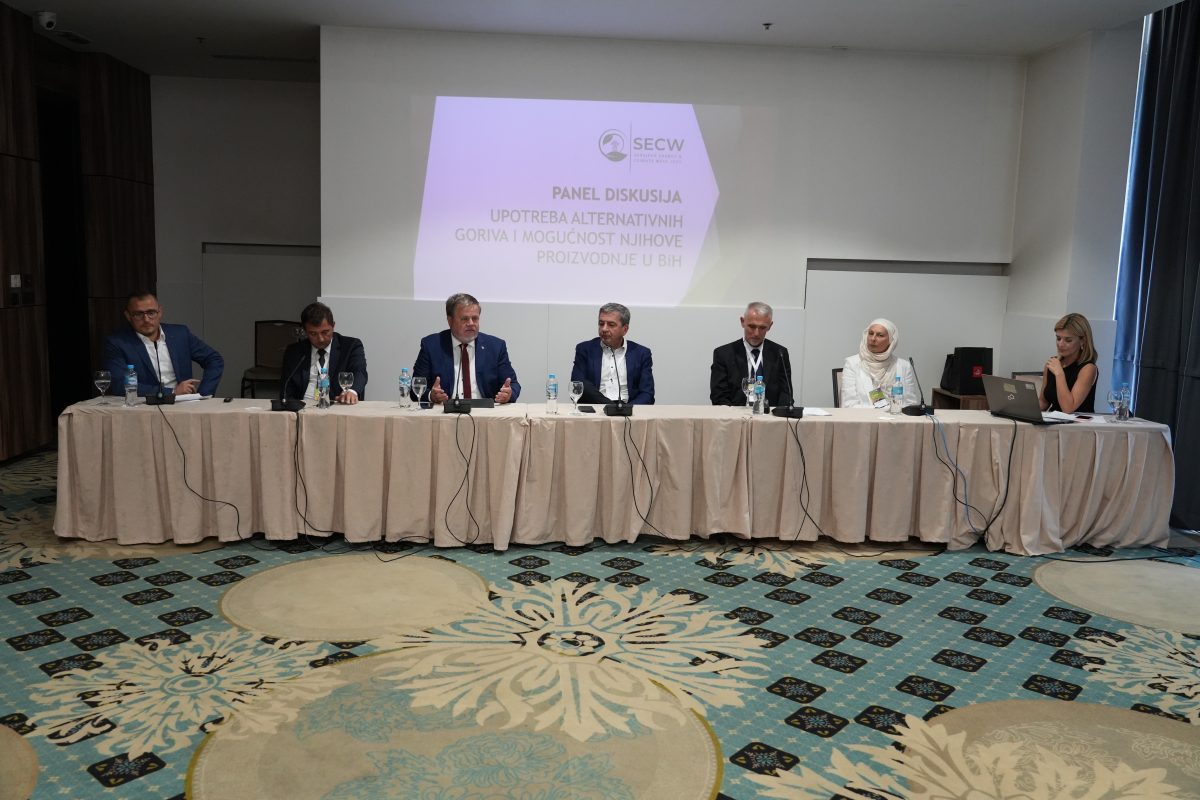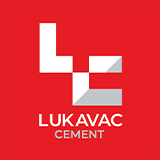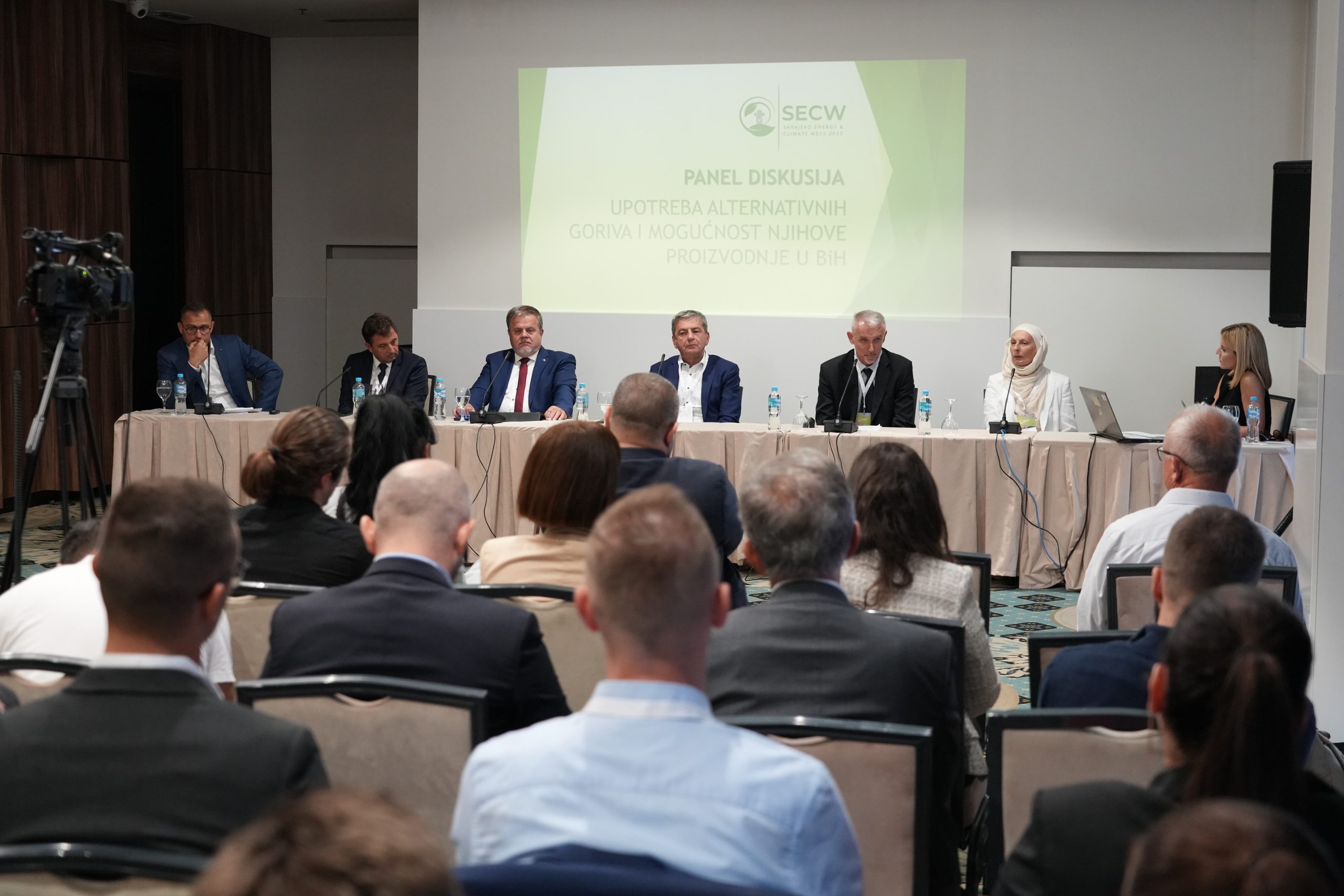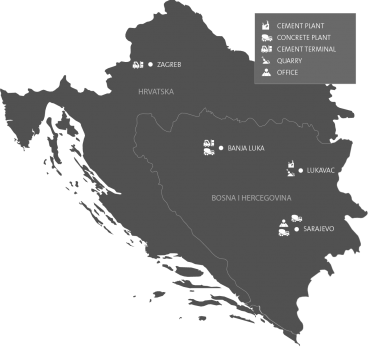A PANEL DISCUSSION ON THE USE OF ALTERNATIVE FUELS AND THE POSSIBILITY OF THEIR PRODUCTION IN BIH ORGANISED BY LUKAVAC CEMENT
Yesterday, September 27, 2023, Lukavac Cement, a partner of the Sarajevo Energy and Climate Week (SECW) 2023, organized a panel discussion “The use of alternative fuels and the possibility of their production in Bosnia and Herzegovina” as part of the international conference “Energy transition – Path to a new energy and climate future of the region”.
Lukavac Cement gathered distinguished experts from Bosnia and Herzegovina and Slovenia who discussed the possibilities of producing alternative fuels in Bosnia and Herzegovina, as well as the numerous advantages of their use in cement plants and industrial plants. The participants of this interesting and stimulating discussion shared their professional knowledge, experiences and possible solutions focusing specifically to the issue of waste disposal in Bosnia and Herzegovina, the circular economy and highlighted the positive example of the Lukavac cement plant, which has been successfully using energy generated from waste for more than 10 years.
After the introductory presentation “Pioneers in the use of alternative fuels” held by Nedim Pašić, technical director of Lukavac Cement, a discussion was raised in order to initiate changes and try to find appropriate solutions for the issue of inadequate disposal of waste and its reuse in BiH.
Dr. Irem Silajdžić, an environmental protection consultant from Sarajevo-based company ENOVA, pointed out that there is a regulated legal and strategic framework in Bosnia and Herzegovina regarding the disposal of solid waste, but that the situation in practice is completely different and there are numerous reasons for such a condition. Currently, waste is only collected and disposed of in illegal landfills usually due to the lack of adequate infrastructure. A possibility for the production of alternative fuels would exist if the long-anticipated project of regionalization of sanitary landfills was implemented.
Dr. Džafer Dautbegović, from company Alba Zenica, spoke about the good practice in Bosnia and Herzegovina based on example of its company which proved how a part of disposed communal waste can be used for reuse. He said that Alba in Bosnia and Herzegovina has plans to start the production of alternative fuel, but it is necessary to remove certain obstacles. In addition, wider social community, state and competent ministries should see that such treatment of waste will improve the utilization of secondary raw materials and reduce the burden of harmful emissions as well as the use of fossil fuels which would lead to the reduction of environmental pollution in our country.
The situation in Slovenia, a member of the European Union, is completely different compared to BiH, where waste resources are reused and converted into alternative fuel which is exporting to Austria, Slovakia, Hungary and other countries and whose only user in BiH is Lukavac Cement.
Miljenko Muha, managing director of the Slovenian company Kostak d.d which produces alternative fuel, emphasized that only non-hazardous waste separated from municipal waste is used in production and has absolutely no negative impact on the environment. Usually, European laws require that separated communal waste of a certain calorific value, which cannot be recycled, must not be disposed of in landfills and instead is used for production of fuel from waste. He also mentioned the example of the municipality of Krško, where only 5% of the collected municipal waste is disposed of in landfills and Bosnia and Herzegovina has to move in that direction since the current practice of dumping waste in landfills and nature is only causing enormous damage.
Mayors of Lukavac and Mostar, dr. Edin Delić and dr. Mario Kordić, presented practices related to waste disposal in their towns, but they also talked about civic awareness and the need for constant education which Lukavac Cement has been doing for years by investing in various types of such programs.
Delić expressed great proud over the project of using alternative fuels in the Lukavac cement plant which had affected its citizens to become aware that this is a quality solution due to their transparency, openness, good organization and communication. Nevertheless, he said that around 200,000 tons of waste is produced annually in the municipality of Lukavac which is disposed everywhere while its conversion into fuel would bring progress and improvement. He believes that the solution lies in joint work and regionalization since the local communities are not able to solve the problems of inadequate waste disposal individually because it also involves large investments.
Stjepan Kumrić, managing director of Lukavac Cement, confirmed that the doors of Lukavac Cement are always open to all those interested in getting to know the production methods and the use of alternative fuels in the process since Lukavac Cement is part of the solution, instead of a problem, for the disposal of processed waste.
Mostar is a town that has problems with both waste and landfill, said Kordić, mayor of Mostar. In his opinion, the key assistance should come from higher levels of government, because they cannot solve it on their own. He sincerely hopes that this panel discussion will be a trigger for the creation of new partnerships that can lead to solutions such as starting the production of alternative fuel in Bosnia and Herzegovina which would gradually solve the pressing problem of waste management and disposal in our country.
All participants agreed that this is the direction to go with joint efforts, especially since such a product can be used in large capacity in Lukavac Cement and all other industrial plants in BiH that are on the path of green energy.
